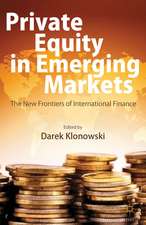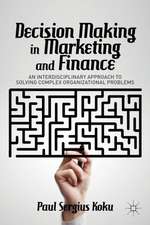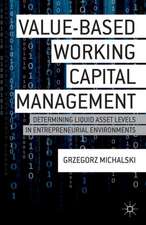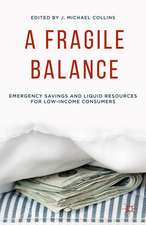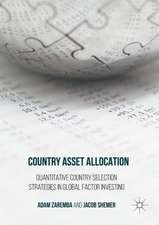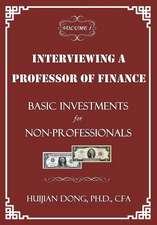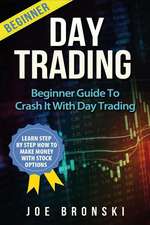Germany’s Economic Renaissance: Lessons for the United States
Autor J. Ewingen Limba Engleză Hardback – 9 apr 2014
| Toate formatele și edițiile | Preț | Express |
|---|---|---|
| Paperback (1) | 380.84 lei 6-8 săpt. | |
| Palgrave Macmillan US – 9 dec 2015 | 380.84 lei 6-8 săpt. | |
| Hardback (1) | 385.84 lei 6-8 săpt. | |
| Palgrave Macmillan US – 9 apr 2014 | 385.84 lei 6-8 săpt. |
Preț: 385.84 lei
Nou
Puncte Express: 579
Preț estimativ în valută:
73.83€ • 78.95$ • 61.56£
73.83€ • 78.95$ • 61.56£
Carte tipărită la comandă
Livrare economică 17 aprilie-01 mai
Preluare comenzi: 021 569.72.76
Specificații
ISBN-13: 9781137349736
ISBN-10: 1137349735
Pagini: 208
Ilustrații: XX, 185 p.
Dimensiuni: 140 x 216 x 18 mm
Greutate: 0.36 kg
Ediția:2014
Editura: Palgrave Macmillan US
Colecția Palgrave Macmillan
Locul publicării:New York, United States
ISBN-10: 1137349735
Pagini: 208
Ilustrații: XX, 185 p.
Dimensiuni: 140 x 216 x 18 mm
Greutate: 0.36 kg
Ediția:2014
Editura: Palgrave Macmillan US
Colecția Palgrave Macmillan
Locul publicării:New York, United States
Cuprins
1. A Brief History of Made in Germany 2. Revival 3. The Seeds of Complacency 4. Renaissance 5. The Soul of the German Economy 6. Boldly Cautious 7. 'We're Never the Cheapest' 8. Mini Multinationals 9. Little Swabia and the Art of Global Manufacturing 10. Cars, Engineers, and the Internet 11. 'Azubis' and the Skills Pipeline 12. The Education of a German Manager 13. The Seeds of Complacency (II) 14. Lessons for the Rest of the World
Recenzii
"Jack Ewing dissects German business rules, habits, and procedures with the precise curiosity of an engineer who takes apart and analyses the newest product of a competitor. His approach is hands-on rather than theoretic and due to dozens of interviews with CEOs, managers, and company owners, as well as employee representatives, he attains an illuminating insight into the inner machinery of the German economy and its success. In doing so he has written a very easily understandable and readable book about the second German Wirtschaftswunder. " - Wolfgang Reuter, Editor, Handelsblatt
"Anyone looking to understand what makes Germany tick should read this book. Extraordinarily deft, profoundly human, and yet a deep analysis of how and why Europe's biggest economy works. Jack Ewing has spent two decades chronicling Germany, and has poured his knowledge and insight into one of the best portraits of the newly born, post-Cold War country, its leaders, and above all its prudent yet daring business people, the bedrock of their country, its success and its stumbles." - Alison Smale, Bureau Chief, The New York Times, Berlin, Germany; former Executive Editor, International Herald Tribune
"Jack Ewing's analysis of the German economy's structure and character is comprehensive and thorough. From traditions to mentality, education to business practices, 'Mittelstand' to 'Agenda 2010', he describes what makes the German economy what it is today. As an experienced high-caliber journalist and long-time German resident, he is able to translate the specific characteristics of German management, economic policy, and society into an accessible and enjoyable read recommended for non-Germans and Germans alike." - Roland Berger, Founder and Honorary Chairman, Roland Berger Strategy Consultants
"Is Germany's resurgence as a global economic power and political leader in Europe due to a secret strategy no one else can duplicate? Jack Ewing's insightful analysis of Germany's story shows how Germans built an equation based on historical strengths, adaptation to change, and commitment to competitive excellence. Typical German? Maybe - or maybe not, for those willing to take a look and a lesson from German formulas for success." - Jackson Janes, President, American Institute for Contemporary German Studies, John Hopkins University, USA
"Guido Westerwelle once said about Germany's economic competition with the United States, 'wir müssen Amerika nicht unbedingt kopieren sondern kapieren' (we don't necessarily have to copy the United States rather understand it). The United States has had a different path to its pinnacle of economic success, but it certainly can take a look across the Atlantic to understand what tools are needed to compete today - including those made in Germany." - AICGS Notizen
"Ewing uses a variety of small to midsized firms and their generally noncorporate owners to illustrate the 'German' approach totechnical innovation, market cultivation, and periods of economic stagnation . . . Very well written, the book exhibits a style that makes it accessible to a broad academic and nonacademic readership." - CHOICE, Recommended
"This exposition of the German approach clarifies very persuasively why the German economy has once again achieved the role of powerhouse in Europe, and begs the obvious question of what others could learn from its strategy: 'Kapieren statt kopieren' that is 'understanding rather than just copying' must be the name of the game." - German Politics
"Anyone looking to understand what makes Germany tick should read this book. Extraordinarily deft, profoundly human, and yet a deep analysis of how and why Europe's biggest economy works. Jack Ewing has spent two decades chronicling Germany, and has poured his knowledge and insight into one of the best portraits of the newly born, post-Cold War country, its leaders, and above all its prudent yet daring business people, the bedrock of their country, its success and its stumbles." - Alison Smale, Bureau Chief, The New York Times, Berlin, Germany; former Executive Editor, International Herald Tribune
"Jack Ewing's analysis of the German economy's structure and character is comprehensive and thorough. From traditions to mentality, education to business practices, 'Mittelstand' to 'Agenda 2010', he describes what makes the German economy what it is today. As an experienced high-caliber journalist and long-time German resident, he is able to translate the specific characteristics of German management, economic policy, and society into an accessible and enjoyable read recommended for non-Germans and Germans alike." - Roland Berger, Founder and Honorary Chairman, Roland Berger Strategy Consultants
"Is Germany's resurgence as a global economic power and political leader in Europe due to a secret strategy no one else can duplicate? Jack Ewing's insightful analysis of Germany's story shows how Germans built an equation based on historical strengths, adaptation to change, and commitment to competitive excellence. Typical German? Maybe - or maybe not, for those willing to take a look and a lesson from German formulas for success." - Jackson Janes, President, American Institute for Contemporary German Studies, John Hopkins University, USA
"Guido Westerwelle once said about Germany's economic competition with the United States, 'wir müssen Amerika nicht unbedingt kopieren sondern kapieren' (we don't necessarily have to copy the United States rather understand it). The United States has had a different path to its pinnacle of economic success, but it certainly can take a look across the Atlantic to understand what tools are needed to compete today - including those made in Germany." - AICGS Notizen
"Ewing uses a variety of small to midsized firms and their generally noncorporate owners to illustrate the 'German' approach totechnical innovation, market cultivation, and periods of economic stagnation . . . Very well written, the book exhibits a style that makes it accessible to a broad academic and nonacademic readership." - CHOICE, Recommended
"This exposition of the German approach clarifies very persuasively why the German economy has once again achieved the role of powerhouse in Europe, and begs the obvious question of what others could learn from its strategy: 'Kapieren statt kopieren' that is 'understanding rather than just copying' must be the name of the game." - German Politics
Notă biografică
Jack Ewing is European Economics Correspondent for The International New York Times, based in Frankfurt, Germany. He has spent more than 20 years covering German business and economics, including a decade at BusinessWeek magazine. He holds a master's degree in history from Trinity College, USA.

